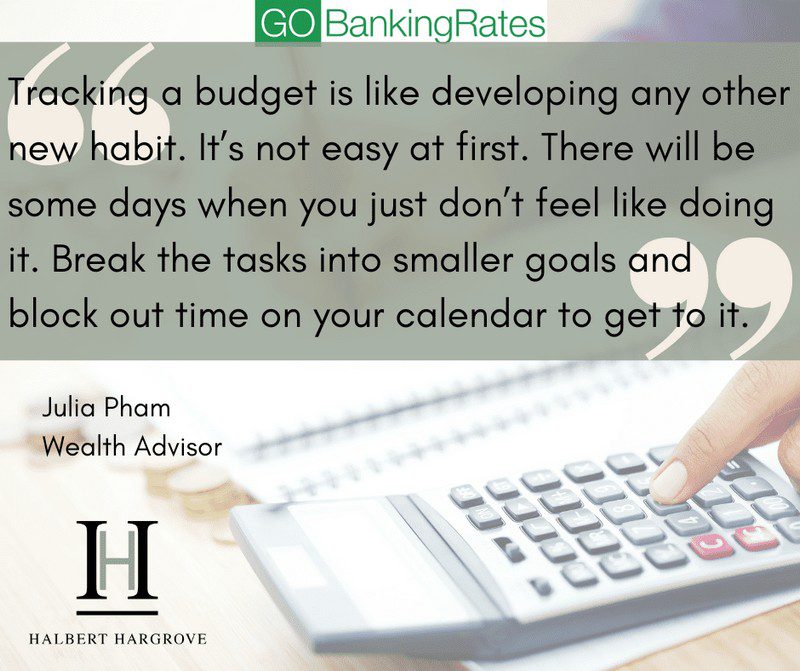By Andrew Lisa, GoBankingRates featuring Julia K. Pham, CFP®, AIF®, CDFA®, Wealth Advisor at Halbert Hargrove
Millennials stumbled out of the starting block and into adulthood just as the Great Recession was heating up. The oldest among them were still in their mid-20s. With all the warning signs pointing to a looming recession today, it looks like their younger siblings in Generation Z are headed for a similar fate.
There’s not much that today’s teenagers and 20-somethings can do about the GDP, inflation, stock market, employment rate or anything else that makes a recession so miserable — but that doesn’t mean they’re helpless.
GOBankingRates asked money experts from different fields what Gen Zers can do to shore up their financial defenses in preparation for the recession that so many analysts are predicting. They gave the following advice.
Don’t Enter a Recession Strapped With Debt
Young people want to make compound interest work in their favor by investing, not work in the bank’s favor by borrowing irresponsibly — especially if economic trouble is brewing.
“Avoid debt,” said Meredith Lepore, a personal finance expert with Credello. “It is quite a simple concept but can be really hard to execute. Avoid taking on debt by living within your means and saving up for big purchases.”
If you do have outstanding debts, Lepore recommends paying down those with the highest interest rates first.
“The reason for this is because the longer you have debt, the more interest you’ll accrue,” she said. “This means that paying off high-interest debt first will save you money in the long run.”
Pursue Education Based on Cost Over Prestige
Some Gen Zers already have entered the workforce, but many others are leaving high school with plans to continue their studies first. If a recession truly is looming, the last thing they want is to stumble out of college saddled with student debt. Higher education is best attained at the lowest possible cost.
“This could mean pursuing a trade school or technical college instead of getting a bachelor’s degree,” said Melanie Hanson, editor in chief of EDI Refinance. “It should definitely mean targeting a college for its low tuition, and perhaps starting at a community college for even cheaper tuition. Unless you’re looking at extremely prestigious schools like the Ivy League or a handful of others, simply having the degree is the thing that matters the most.”
Be Leery of Advice From Online Influencers
Gen Z is the first generation in history to grow up with social media, so it’s only natural that they would confuse influencers for experts. With interest rates rising and the crypto and stock markets in the tank, it’s more important than ever to view influencer-based financial advice with a skeptical eye.
“Social media creators on apps like TikTok and Instagram often promote day trading and stock picking and try to convince viewers it’s easy,” said Mark Henry, founder and CEO of Alloy Wealth Management. “If it sounds too good to be true, it probably is. Even trained professionals can’t really predict and time the markets. It’s important to do your own research instead of just listening to financial influencers — and talk to an advisor who can help you create a long-term investing plan.”
Pursue Multiple Income Streams
If the pandemic taught America anything, it’s that multiple sources of income provide more security in times of crisis than an emergency savings fund — although it’s even better to have both.
One of the best ways Gen Zers can protect themselves from the economic onslaught of a recession is to insure themselves against job loss and unexpected expenses by bringing in money from more than one source.
“The side hustle has become a crucial element in the fight against rising inflation and exorbitant rent costs,” said Brian Dechesare, founder of Breaking Into Wall Street. “One often overlooked benefit of having a side hustle is that it allows people to save and invest more of their overall income.
“In an uncertain world, saving for the future might seem futile, but it actually becomes even more important. As well as allowing us to further our savings, a side hustle can also allow people to put money toward investments, which can be a fantastic tactic for building future wealth security.”
Whip Your Budget ‘Muscle’ Into Shape
As of right now, a recession is still only a possibility — but given enough time, an economic downturn is inevitable. The best thing that young Gen Zers can do right now before things turn for the worse is to get in the habit of tracking their spending. It’s a skill that’s sure to come in handy when a recession sets in.
“You’ll want to build up your budget-tracking ‘muscle,’” said Julia Pham, CFP and wealth advisor at Halbert Hargrove. “Tracking a budget is like developing any other new habit. It’s not easy at first. There will be some days when you just don’t feel like doing it. Break the tasks into smaller goals and block out time on your calendar to get to it.
“Remember, as you’re tracking your budget, pay special attention to your monthly needs or essential expenses — such as housing, transportation, utilities, medical expenses, debt payments and food — versus your wants, such as entertainment and travel.”


